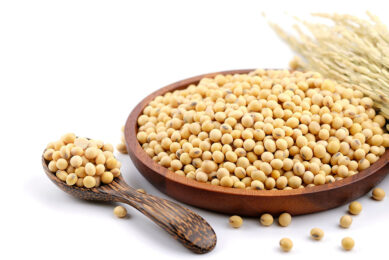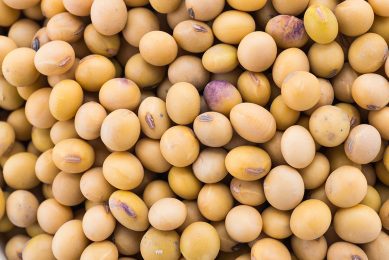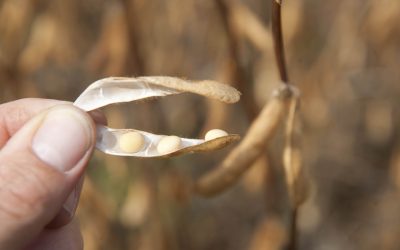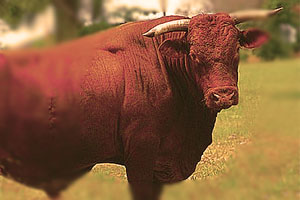Pest-resistant soybeans developed
Scientists at Michigan State University have developed two lines of pest-resistant soybeans, which promise healthier harvests for growers.
"Sparta — the Soybean Aphid Shield" is the new trade name for genetics developed by Dechun Wang. The associate professor of crop and soil science tested some 2,000 strains of soybeans against aphids to isolate four with different resistant genes.
From those he developed germplasm, or seeds to breed into varieties suited to Michigan’s shorter growing season.
"The final goal," Wang said, "would be to have one variety that has all those resistant genes," maximizing protection against different biotypes of aphids and perhaps other pests such as Japanese beetle.
Unchecked, aphids can lay waste to half the output of a field, but one application of insecticide might add 10% to the cost of production — and kill beneficial insects as well.
External funding
"That really has been our only answer until this new host plant material," said Keith Reinholt, field operations director for the Michigan Soybean Promotion Committee.
His group invested about $250,000 in grower assessment revenue since 2002 to fund Wang’s research, earning first claim on licensing rights after MSU patented the resistance technology.
The germplasm already is the subject of growing interest among seed companies, which will cross it with their own varieties.
The grower board will earn royalties from sale of seed company varieties containing the trait.
A portion of those will come back to MSU, which will in turn distribute royalties to Wang, the College of Agriculture and Natural Resources and to the MSU Foundation.
"With one exception, all the major soybean genetics companies have licensed his germplasm because the level of resistance to soybean aphids is very high," Department of Crop and Soil Sciences Chairperson James Kells said.
"We’re very excited about this technology, and we see great potential for commercialization and impact on soybean growers in Michigan and the U.S."
In addition to funding by growers, Wang’s research is supported by the Michigan Agricultural Experiment Station.











